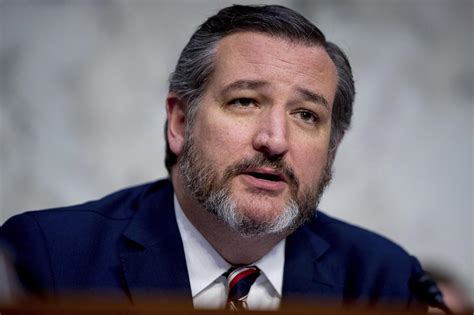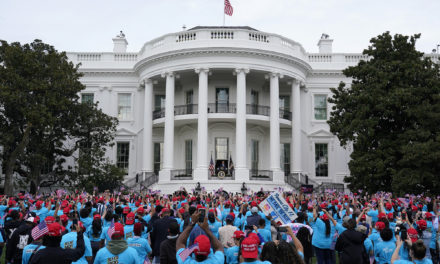Was it fitting that yesterday’s Republican primaries in Ohio, Illinois, Missouri, North Carolina, and Florida landed on the Ides of March? The coincidence with the famous assassination of Julius Caesar amused some and irritated others, but history is history, and, thanks to Shakespeare, literature is literature. And, to be sure, there was plenty of drama.
Poor Marcus Brutus. As men for centuries have believed, he did nothing more than try to save the republic. Alas, he was too late; the phenomenon of Caesarism had taken such deep root that the removal of a man’s body, even Caesar’s, could not stunt the creed’s growth. When Caesar’s ghost informed the distraught Brutus that he would meet him at Philippi, he wasn’t joking by half. What met him was the idea, Caesarism, one perhaps only Octavian could fully appreciate, leading to the end of the republic and the rise of imperial Rome. Antique republicans lamented the sea change, but, as surely then as now, tears were to no avail.
Did the recent primaries of our own Republicans signal an equally radical change in the direction of American politics? We won’t know the answer to that one for a few months. Allowing for that bit of bet-hedging, it’s certain that a political career or two has been changed at the bare minimum for the short term.
Who were the winners and losers? The question was a matter of some controversy when there were seventeen candidates. After Tuesday, with only four, the assessment has become much easier; and, I hardly need add, the four have dwindled to three.
The all-invincible conqueror of what many regarded as Super Tuesday II was Donald Trump. Surprised? No one should have been; the Real Clear Politics averages had him with firm leads in every state but Ohio on election eve: by 18% in Florida, 6.5% in Illinois, 12.3% in North Carolina, and 7% in Missouri.
The final count proved largely accurate in Florida and Illinois, but considerably off in North Carolina, where Trump beat Cruz by 3.4%, and Missouri, where Trump won by less than 2,000 votes over the Texas senator. Not that those close calls fazed Trump. For the man to whom winning is everything, three and perhaps four triumphs was enough, and if you listen to Anne Coulter, Roger Simon, Laura Ingraham, and Trump himself, it’s time for the Grand Old Party to shake off its doubts, and, in Simon’s words, love Donald. However, don’t expect it to happen right away.
John Kasich won his home state, which, to listen to him, was tantamount to winning the nomination, the election, and the Miss American pageant all rolled into one. Still, it was an impressive victory of eleven percentage points over Trump; not too long ago the polls had him fighting for his life. Whether it will translate into more victories down the road remains to be seen; the Kasich camp quite naturally is insisting that it will, claiming, among other things, that Rubio supporters will break for their man at a ratio of three to one.
What other things are they claiming? For one, that Kasich just may reach the convention with a plurality of the delegates. Give them credit: they’re men of faith, but, then, Governor John did offer Bibles to those who opposed his Ohio’s Medicaid expansion.
Ted Cruz had a mixed night. As I’ve already indicated, he finished much closer to Trump in North Carolina and Missouri than the polls predicted, and although few analysts have said much about it, the second place in Illinois was worth noting. As recently as March 6th, the Chicago Tribune had him ten points back of the reality-television star; more important, he finished well ahead of Kasich in yet another mid-American state where the Ohioan was supposed to be at his strongest. But Cruz needed a victory, and Missouri, which was his last chance, did not supply it.
In the next few weeks, his fortunes will hinge on how well he can muster his troops for a series of closed primaries out west. Logic suggests he will excel in a region that has traditionally swung conservative, but logic went out the window months ago. More optimistically, Utah and Arizona are next and might prove prime territory for the Texan. (Disclosure: I support Ted Cruz.)
The great loser of the night was Marco Rubio. Was this a case of Et tu, Trumpe? (Not really, Trump and he were never friends.) Unlike Kasich, Rubio had sense enough to suspend his campaign after multiple losses, Florida most notably, and let the more successful candidates slug it out. There isn’t room here to offer a post-mortem on Rubio’s fall except to say that his miscalculation in 2013 with the infamous “Gang of Eight” immigration bill did as much as anything to damage his prospects.
Young, energetic, and articulate, it’s hard to believe that Rubio will not play a major roll in politics sometime in the future. However, the future is not now, and in an evolving world where in-your-face Trumpismo sets the tone of political discourse, the knives are out and being sharpened. All one can hope is that a year or two in the wilderness will see a wiser Rubio with better campaigning skills and a better sense of the threat to our borders. Until that happens, he’ll remain in the wilderness.
To put not too fine a point on it, things are looking brighter than ever for Donald Trump. Are they for the country? Franklin’s answer to the question “Do we have a republic?” seems sadly as fresh as ever—and as ominous: “Yes, if you can keep it.” Call the threat to our political way of life Caesarism or Trumpism—it makes little difference.
If the spirit of republicanism is to survive, men will need to be both vigilant and clear-sighted. Within months we’re going to find out how abundantly our people possess those necessary qualities.














